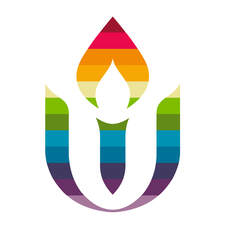|
How might you encourage your congregation to “take the next faithful step” by framing a new initiative within the context of becoming “more of what we have been”? What “back to the basics” considerations might you include to move your congregation from a survival to a thrive mode?
The quote above is a writing prompt from my last doctoral class before I graduate. Over the last three years, this congregation has supported me in my pursuit of a Doctor of Ministry degree, with a focus in Church Leadership Excellence. For me, it has been an ever-present part of the last three years. I’ve spent time writing up case studies, reading literature on organizational change, and (this fall) writing a thesis. I am going to spend this spring on sabbatical, in part to refine and present my work, before graduating in May. This particular prompt, though, feels like an animating question for the next five months. What is the next faithful step for us to take, together, as we move from surviving to thriving? We’ve been through a period of intense change as a congregation: who are we called to be now? I look at the congregation on Sunday mornings and I’m struck by three things: how familiar it feels to be in the rhythm of gathering together at 6300 A Street on Sunday morning, how unfamiliar it feels with a smaller congregation and masks on, and how many new people are here every week. It is a moment of opportunity, a chance to become ‘more of what we have been,’ even as we become more than we have been before. -Oscar
0 Comments
One year ago, in the fall of 2021, I started working with a group of area clergy to start a congregational-based community organizing network in Lincoln. Over the last year this group, under the auspices of the Direct Action Research and Training (DART) Network, has organized itself, passed bylaws, secured funding, is hiring a full time organizer, and is beginning to do the hard work of organizing people of faith in Lincoln to change our community for the better. The lead organizer, Ben MacConnell, spoke at UCL last year, and much of my annual report in May was about this effort.
As part of that work, nine facilitators invited over 230 members and friends of the Untarian Church of Lincoln to participate in ten ‘listening sessions’ over the month of October (if you did not get an invitation, it is because we ran out of facilitators! More ways to get involved as described below). These listening sessions were organized around a single question: “when you wake up at 3:00AM and can’t get back to sleep, what do you worry about?” In the listening session that Stacie and I hosted, we heard stories about racism, the future of our planet, health concerns, and the anger that seems ever-present in society right now. In addition to our listening sessions, twenty churches around Lincoln have been participating in the same process. We’re working to find themes in the hundreds of stories we gathered – two of these themes will define the issues that the network takes on in the coming year. On November 10, members from our congregation will join folks from the other 20 congregations at a Community Problems Assembly, held at Eastridge Presbyterian Church at 7:00 PM. At that assembly, we’ll vote on three big things: 1) The name of the new organization. 2) The two issues we will take on first. 3) The officers for the coming year. I am very excited that the Unitarian Church will be one of the charter members of this new organization. Community organizing, using this model, is one of the most effective ways for us as Unitarian Universalists to make change in our community. Bill Moyers wrote that “the only answer to organized money is organized people.” This is the essence of community organizing: by gathering people together around an issue that affects their lives, we can challenge entrenched interests and organized money. I hope you’ll join us in this work, starting on November 10. Over the last month, I’ve mentioned several times in worship that I will be on Sabbatical this
spring. In September, the Board of Trustees met and approved my proposal for sabbatical leave from January 15 – June 15. What’s a Sabbatical for ministers? Sabbaticals have a long history in the Unitarian Universalist ministry, as a time every 4-7 years that is set aside for study, rest, and spiritual deepening: Fritz Hudson was on sabbatical twice during his time in Lincoln, Charles at least once, though records are harder to find from that time. A sabbatical is an opportunity to think about shared ministry: this is my sixth year in Lincoln, and the congregation and I are no longer getting to know each other. Over the last five years we’ve launched a new ministry, reworked our music program, introduced new worship services, engaged in making justice together, rewrote our bylaws, and responded to the last several years of the pandemic. A sabbatical is designed to be an opportunity to take a breath in the midst of shared ministry: to step back and have time to consider “where are we going together?” The questions that animated the first five years of my ministry in Lincoln (How can we organize our governance? How do we respond to the pandemic? What door does this key open?) are probably not the questions of the next five years. This spring is a chance to start to discern some of those next questions. This sabbatical is also an opportunity for me to finish my doctoral work. As you read in this column last month, I am putting together an oral history of the pandemic at UCL for my Doctor of Ministry (D.Min) thesis at Wesley Theological Seminary. I will spend much of this spring editing, refining, and eventually presenting that project in academic settings, before graduating in May 2023. Last, the sabbatical is an opportunity to rest. The last three years have been hard ones for clergy, along with every other helping profession. I am carrying my own wounds and tender places from this time, and I look forward to having some time to intentionally tend to them. Where will you be? From January 15 – June 15, Stacie, Ailish and I will live in the village of Bessels Green, in the UK. The Sevenoaks Unitarian congregation will host us in their parsonage, in return I will be preaching for their congregation twice a month. Last winter, I reached out to the English Unitarian denominational offices, and told them the story of Charles Stephen’s pulpit swap in the 1970s. One thing led to another, and we found this small congregation in transition that is excited to host my family and I for a short time. What will happen in Lincoln? Much like we’ve done during sabbaticals for our RGL Director and Admin Director, there is a written sabbatical plan, laying out the areas of my work, and how they will be covered in my absence. Worship will be led by a combination of lay voices and ministers from across Unitarian Universalism, including a monthly worship series from one of my colleagues (more on this soon!) Over the next several months, I will be communicating often about what is happening in this planning, as well as who to contact about what while I am away. I know that it is a privilege to have this opportunity, and it is one that I am deeply grateful for. The sabbatical tradition in Unitarian Universalism is what makes long ministries vital – and this is a congregation with a history of long, vital ministries. As I move in the latter half of my first decade in Lincoln, it is a good time to take a breath, take stock, celebrate what we’ve done, and discover what we can do together next. 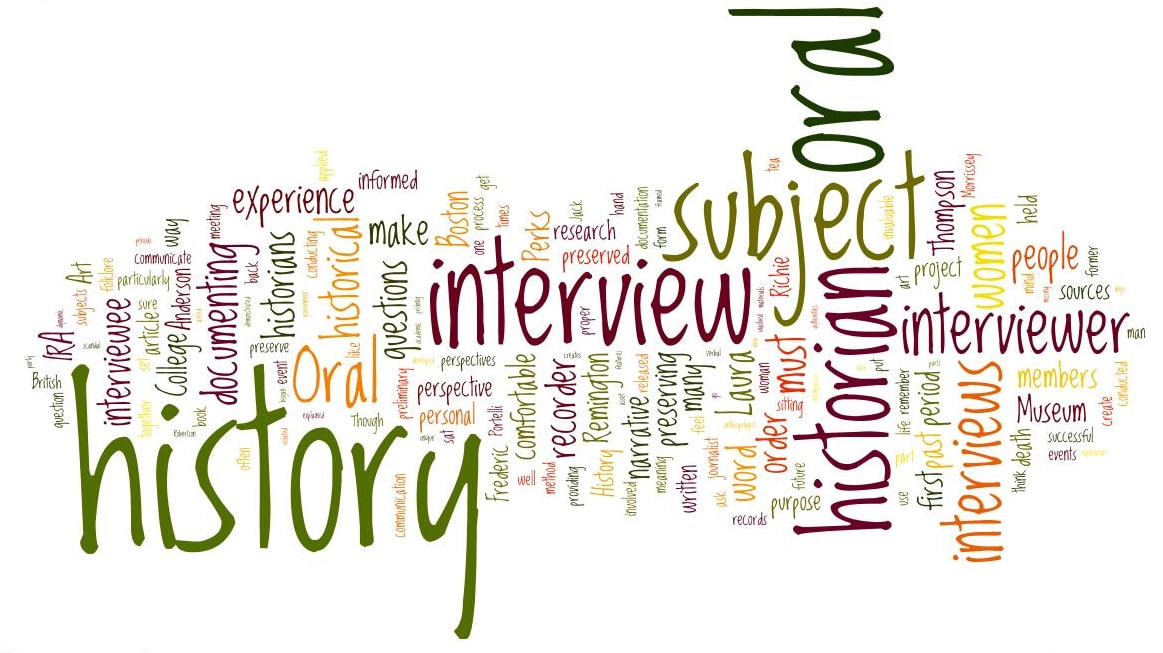 Oral History Project When we gather for our water service at the beginning of September, it will mark the beginning of my sixth year serving the Unitarian Church of Lincoln – and the fourth congregational year impacted by the ongoing COVID-19 pandemic. The role of the pandemic in shaping congregational life is changing. All our members and children are able to be vaccinated, our multi-platform systems are well established, and we are flexible in our response to changing case rates. Rather than closing our building again, we will depend on each family to decide how they want to engage, whether through in person events, online options, or a combination of the two. The theologian Walter Brueggemann talks about how faith progresses from orientation, to disorientation, to a new orientation: how traumatic or difficult events fundamentally disorient us, leading us to lament and confusion before eventually coming out the other side different than when we started. So, while this congregational year will look more ‘normal’ than the two that have preceeded it, it is not realistic to believe that we are going back to the Unitarian Church of Lincoln as it existed in September 2019: we have been changed, collectively and individually by the events of the last three years. One of the ways I have spent the last three years is by working my way through a Doctor of Ministry (D.Min) program in Church Leadership, at Wesley Theological Seminary. It has been an opportunity, over the course of the pandemic, to regularly check in with interfaith colleagues around the country, and to engage with literature and research around theology and how congregations change. After two years of coursework, I am now drafting my thesis, and anticipate graduating in May. The D. Min degree is a professional degree; rather than purely academic research, the thesis is an opportunity to develop a project at the congregation you serve, and then reflect on its impact. As I have been putting together the proposal for my project this summer, I have been reflecting on the last several years of congregational life: how so many of us are articulating a feeling of disconnection from each other and our institutions. Some of this comes from the nature of the last several years: The experience of the pandemic was universal in its impact and deeply personal in its lived experience. Just in our community, our young families and elderly homebound folks have both suffered, but in different ways. My D. Min work is an attempt to address that disconnect. Over the next six weeks, I am going to ask all our members to sit down with each other one on one to have a structured conversation about what your experience of the last three years has been. We will record these stories: both the ones of triumph over adversary, and the ones of loss and isolation. And then, in November, we will share those stories in a worship service, as part of an Oral History of the pandemic at the Unitarian Church of Lincoln. An important part of moving to a new orientation is articulating the disorientation: saying aloud what has happened. We do that not to dwell on what has happened, but to rebuild the foundation of our community for whatever comes next. I hope you will join us in that work. -Oscar 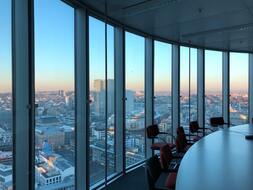 Every August, the Unitarian Church of Lincoln’s Board of Trustees gathers for a retreat, to deepen our relationships with each other, reflect on the year that has been, and set goals for the coming congregational year. Each year is an opportunity to step back and get a sense of the ‘big picture’ for the church, and then to ground that picture in our shared Unitarian Universalist faith. In this coming retreat, there is much to reflect on and much to look forward to. The last three congregational years have been largely driven by the COVID-19 pandemic, and while the pandemic is still with us, we have reached a point with vaccines, masking, and other mitigation measures that I hope it will become part of the background context of our community, rather than the driving force. Even while responding to COVID in the last several years, UCL has grown our relationships with other communities and organizations in Lincoln. From the Niskithe Prayer Camp and our Summer Programming, to the DART community organizing initiative, our participation in Beloved Conversations, and our continued work with Planned Parenthood to ensure reproductive rights are protected in Nebraska, we have a lot to be proud of – and a lot to build on. My first day in this office was five years ago this week, and I remember being told, that first year, that the mission statement of the Unitarian Church of Lincoln was to ‘show up.’ I confess, I thought for the first few years I was here that this was overly broad and poorly-defined for a mission statement, but I’ve found during the pandemic that it is a accurate and aspirational description of who we are as a community. Who is the Unitarian Church of Lincoln? Those folks who keep showing up at everything. When we gather at the Board Retreat this month, we’ll be gathering to do some concrete governance work, narrowing down priorities to a concise set of goals, thinking in terms of five year plans and budgets. But fundamentally, the work is about this: how do we encourage and develop the enormous strength of this community? How do we help you show up, as Unitarian Universalists, in a world that needs to hear your voice? How do we create a community that brings new folks in, and asks them, in turn, to show up? There’s a tiny mascot at the church (pictured above). He’s hard to find, and a little shy, but since meeting him five years ago on a tour of the building, I’ve checked in on him every few weeks. For the last two years, it’s often felt like he was the most consistent presence in UCL’s gallery. Our theme for the month of April is Awakening. In the midst of the rain, cranes, mud, and rapidly changing weather in Nebraska it feels like a kind of awakening is happening in our congregation. In March, following a rapid drop in COVID-19 cases in Lancaster County, we started to welcome back pieces of our congregational life that have been missing for a long time. On March 13, we held in- person religious education for kids for the first time this year. On March 20, we served coffee after the worship service for the first time in over two years. On March 22, the Lincoln Lancaster County Health Department announced that they were moving the COVID risk dial to green, communicating that the risk of spread and impact of COVID-19 in our community is “low.” Over the last two years we have found new ways of being a community. We have put together online worship services, gone to committee meetings on Zoom, reached out by phone and Facebook. These have been, and will remain, important tools to make sure our congregation is accessible to all. At the same time, when I walked into the gallery and smelled coffee brewing and heard kids laughing for the first time in years, I was moved. Five years ago, when I met our mascot, I believed that one of the most important things that a church does is bring people of different ages and backgrounds together in an experience of shared time and space. On Sunday morning we gather together, and there is beauty and meaning just in gathering. It is going to take some time for us to awaken from the last few years, to relearn the rhythms of shared time and space - and we are going to move at difference paces. As we move into spring, the coffee is brewing, and we’re brushing the cobwebs off our long-suffering mascot. Come join us. In February, Unitarian Universalism lost Rev. Jeanne Pupke, a friend and mentor of mine who served as the minister of the First Unitarian Church of Richmond, Virginia. Jeanne was, among many things, a dyed-in-the-wool institutionalist. She often critiqued institutions she was a part of, but always in the service of her care for them, wanting them to be the best versions of themselves.
A frequent topic of conversation between us after I moved to Lincoln was how to build up Unitarian Universalism in Nebraska, emphasizing that while I serve a church in a single community, Lincoln is part of a broader community of Unitarian Universalists living in this part of the world. We are one of four or five Unitarian Universalist congregations in the state (there is a congregation in Scottsbluff, but it is considered part of the mountain west district). Since I moved to Nebraska, we’ve worked hard to build up formal and informal ties, renewing our shared identity as Nebraska Unitarian Universalists. Several of those formal ties are happening in the next few months:
I’ve used “we” very intentionally throughout these bullet points. These relationships are not just relationships among religious professionals, they are relationships between our communities. When we deepen the ties between our communities, we see difference, complimentary ways of living our Unitarian Universalism in the world. If any of these events sound interesting to you, reach out! We would love for you to join us. -Oscar Years ago, when I was grad student in public policy attending First Unitarian Church of Baltimore, I participated in a six-week adult education program on sermon writing. About a dozen members of the church met weekly, in the grade school Sunday School room, and talked about what moves us in worship. Each of us wrote weekly, starting with the seed of an idea, questioning and deepening it, until it became what Emerson called “life passed through the fire of thought.” The summer after the program, each of us in turn preached what we had written to the congregation.
What is remarkable about that program, looking back at it, was how wildly diverse our sermons were. From reflections on childhood experiences, to calls for justice, to reflections of how a particular spiritual practice brought meaning to life, the stories that group told from the pulpit reflected the mosaic of the congregation itself. Unitarians are descendants of the Protestant Reformation. Part of that tradition is the priest and prophethood of all believers - in more contemporary language, the idea that each person in the congregation has a piece of wisdom to share with the rest of us. That idea is what grounds our Worship Associate program, where lay members assist with worship and, about once a month, lead Sunday morning services. Over the last two years, our worship has taken many different forms. By necessity (it is hard to ask a volunteer to do video editing), it has centered the church’s staff more than in the past. As we move into what we will be next, we are revisiting what it means to include a mosaic of voices and stories in worship. In the coming months we’ll be recruiting new Worship Associates to participate in and lead worship on Sunday morning. If this is something you’ve considered before, please reach out! If you have never considered it before, but in reading this article an idea for a sermon tickled the back of your mind, please reach out! Just as preachers, lay and ordained, grow and deepen an idea into a sermon, our community is deepened by every new voice we hear. I sat down to write this column on December 21, the shortest day of the year, and just a few days before the Christmas holiday. As I write, I’m looking forward to wrapping up our service on the 26th and spending some time with my family, including a little sister I have not seen in person since 2019. It is also a day when I have spent much of the morning hearing alarming news about the oncoming Omicron wave, and the day that the Lincoln Lancaster County Dept. of Health announced that Lincoln’s mask mandate will expire.
A few reminders, then, of the intentions we bring to our community as we begin a new year: We Universalists have known for a long time that we do the right thing not because it is required, but because there is intrinsic value in doing so. Our theological ancestors argued that it is wrong (abhorrent, even) to base a system of morality on a fear of eternal punishment. If the only reason I do not punch someone on the street is that I am afraid of hell, what does that say about who I am? Better instead to assume that I am capable of embracing, rather than hating, and that doing so helps to mend a broken world. This is the core of Universalist morality: we do not need some threat of divine punishment to care for our neighbors, we do it because caring for each other is its own reward. This matters, in the midst of another winter of pandemic. Doing the right thing - wearing masks, getting vaccinated, respecting each other’s risk tolerances - is a thing that we do because of our commitments to each other, not because it is required by some external authority. I am worried about what this winter holds. It is a season, as Wendell Berry writes when “despair for the world grows in me/and I wake in the night at the least sound/in fear of what my life and my children’s lives may be.” But there is also consolation in this community. A community that shows that despite what the world looks like some days, there are a few hundred people in Lincoln, Nebraska who choose to gather together and help mend a broken world, simply because it is the right thing to do.  Your joy is your sorrow unmasked. And the selfsame well from which your laughter rises was oftentimes filled with your tears. And how else can it be? The deeper that sorrow carves into your being, the more joy you can contain. When you are sorrowful look again in your heart, and you shall see that in truth you are weeping for that which has been your delight. - Khalil Gibran The existence of broccoli does not, in any way, affect the taste of chocolate. - John Green Soul Matters worship themes are set months, if not years, in advance. The theme for December 2021, “Opening to Joy” was set in the early months of the year, as vaccines rolled out and we looked forward to the end of the pandemic. “The end may be near for the pestilence that has haunted the world this year.” I quoted Zeynep Tufeki is last December’s newsletter, “Good news is arriving on almost every front: treatments, vaccines, and our understanding of this coronavirus. We now know not just that pandemics end, but how this pandemic will end.” Of course that is not quite how the story ended- as I write this article, we are seeing another winter surge of COVID-19 cases in Lincoln, with all the worry and uncertainty that the ongoing pandemic entails for our city and our church community. At the same time, John Green reminds us that the existence of the pandemic does not affect the joy that is being alive. We have learned a lot in the last year. Our understanding of the pandemic is more nuanced, and most of our congregation is now vaccinated. Some time around Christmas, the first children to get shots last month will complete their full vaccination sequence. It is in this context that we gather this holiday season, opening to joy. While we will still take precautions and act in response to the pandemic, it does not dictate the joy we feel- if anything, we have deepened in our capacity for joy in the last two years. The simple joys of being together, cooking a meal, or sharing a conversation are more poignant now than they were two years ago. In this season, eat the broccoli and savor the chocolate. |
Details
AuthorRev. Oscar Sinclair serves as the Settled Minister for The Unitarian Church of Lincoln, Nebraska. Archives
March 2024
Categories |
contact us and WE WILL GET BACK TO YOU AS SOON AS POSSIBLE: |
SIGN UP TO RECEIVE
|
THE UNITARIAN CHURCH
|
|


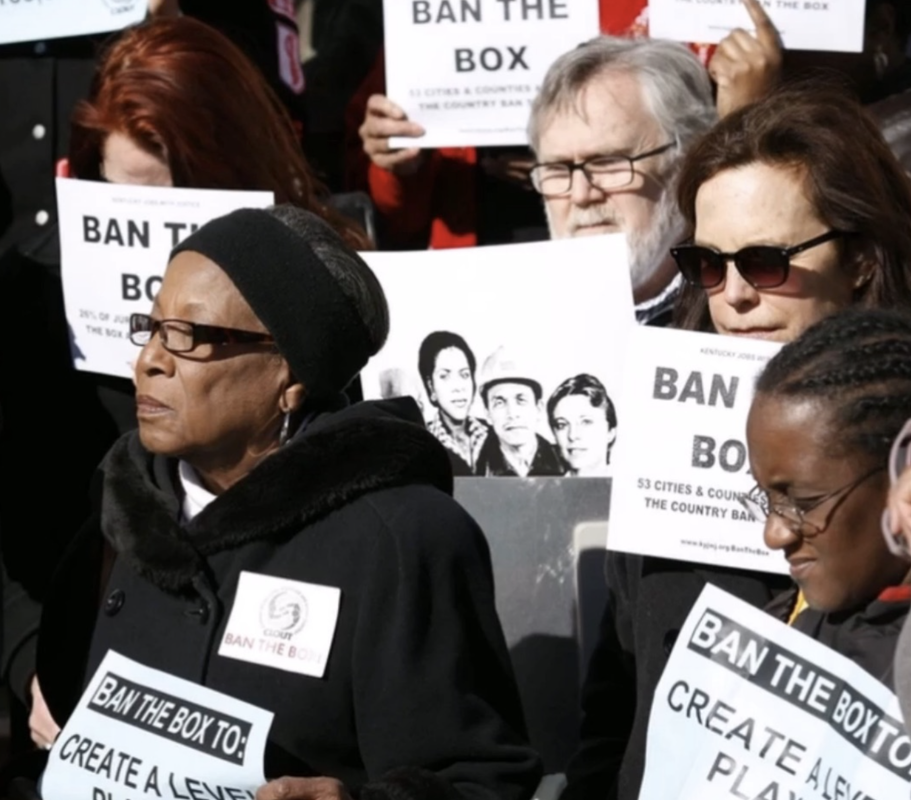
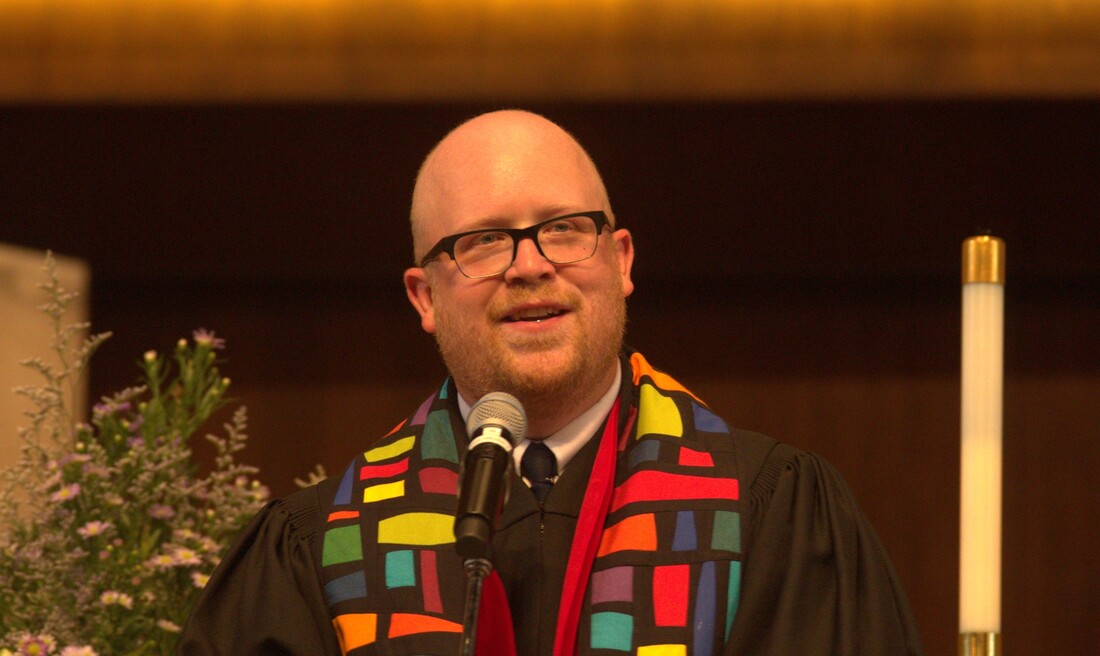
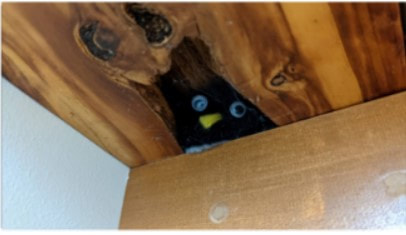
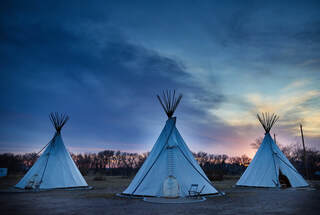
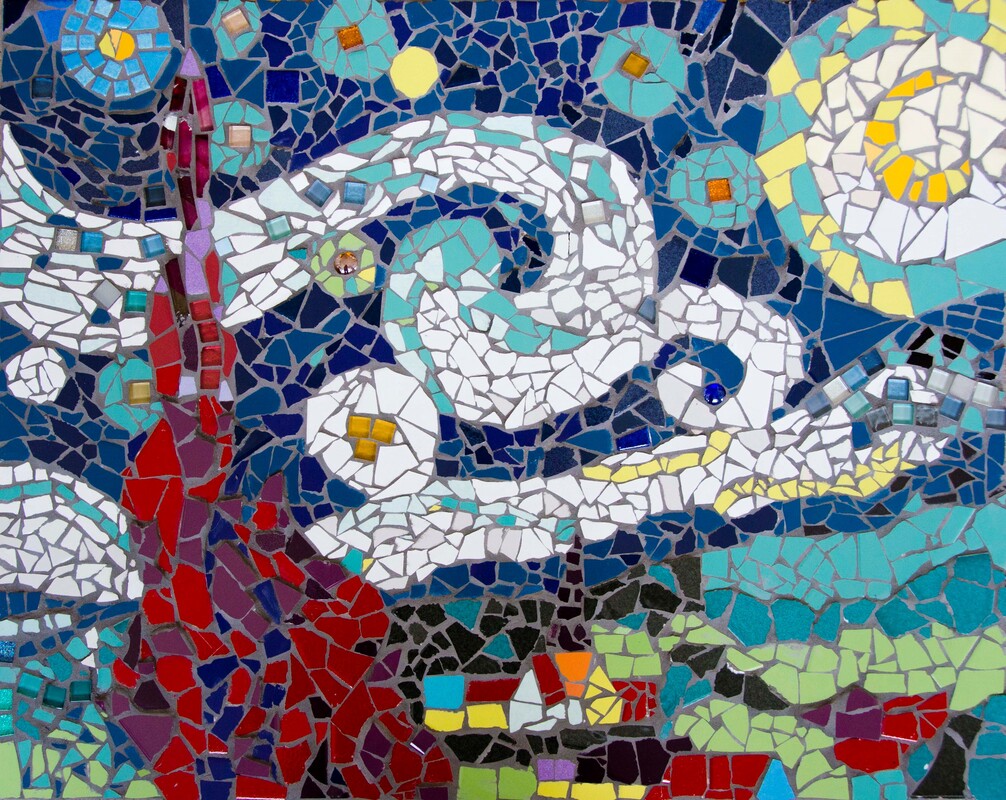

 RSS Feed
RSS Feed
